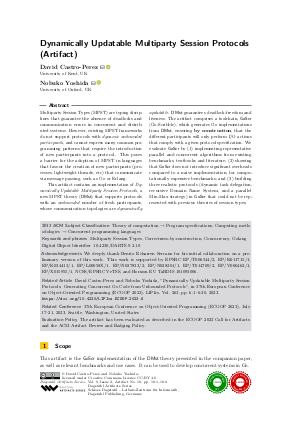DARTS.9.2.10.pdf
- Filesize: 0.49 MB
- 2 pages

 Creative Commons Attribution 4.0 International license
Creative Commons Attribution 4.0 International license

The artifact has been evaluated as described in the ECOOP 2023 Call for Artifacts and the ACM Artifact Review and Badging Policy
Feedback for Dagstuhl Publishing